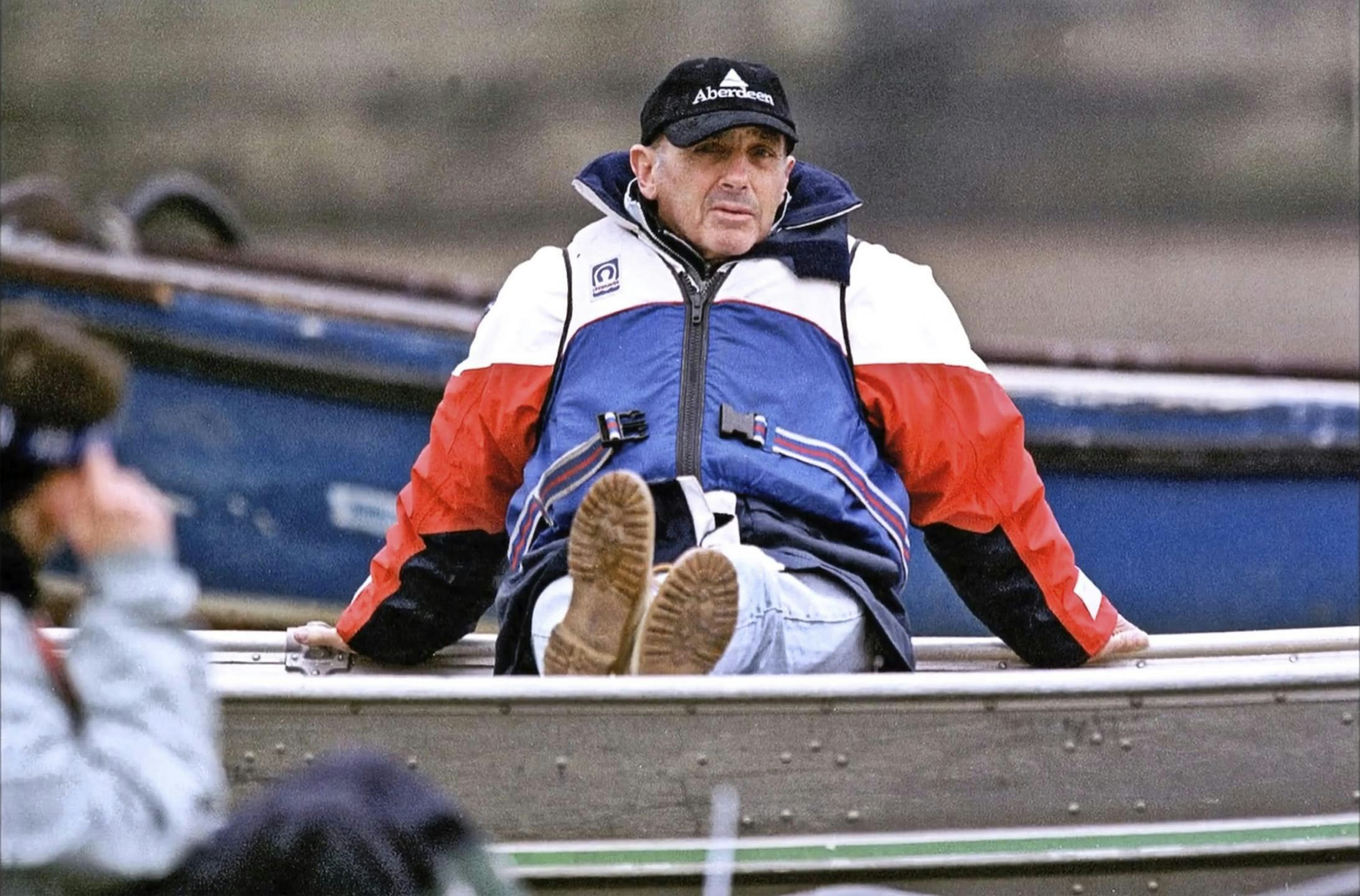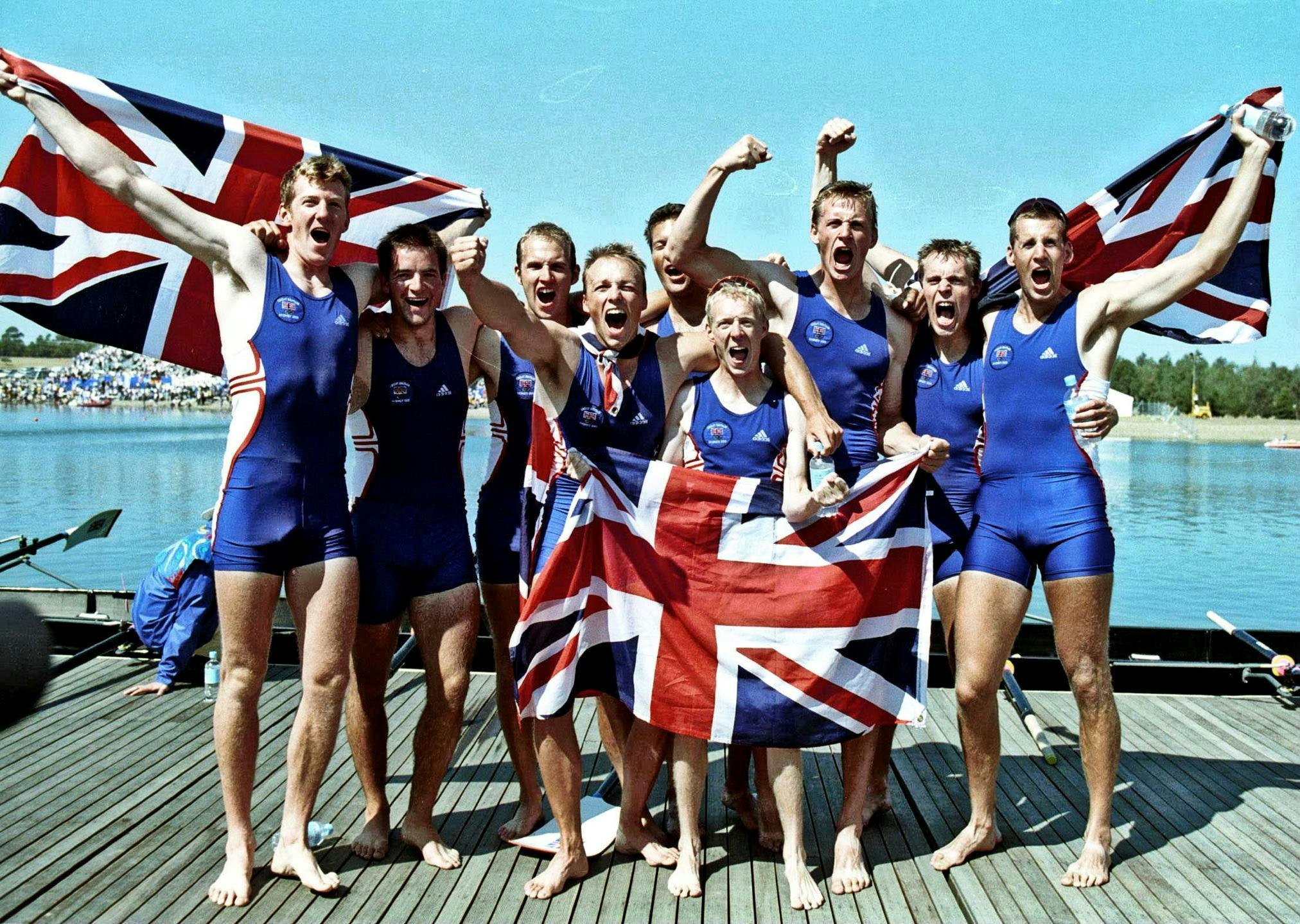This article is taken from the August-September 2025 issue of The Critic. To get the full magazine why not subscribe? Right now we’re offering five issues for just £25.
Harry Mahon was perhaps the greatest rowing coach in the world. He regarded the quest for the perfect stroke not just as a technical matter but as something deeper — the flow of existence, perhaps. Listen to the boat, he’d tell his charges. Hear the boat sing.

He’d coached all over the world and at every level, from schoolkids to internationals, and his crews had won every prize going bar one. He’d never won an Olympic gold in the blue riband event, the men’s eight. Sydney was his last chance to put that right: not because he was retiring but because he was dying. Only in his late fifties, he had colon cancer, and the chemotherapy could not keep it at bay forever.
Martin McElroy had brought Harry in to help with the British eight. The two men were fire and water, a study in contrasts who complemented each other perfectly. Martin was passionate, confrontational and methodical; Harry was calm, relaxed and the wrong side of the piss-up/brewery interface. But he was as much of a wizard as his Hogwarts namesake, and on his oarsmen he sprinkled stardust.
Where other nations had stacked their eights with the best rowers, the British had gone the other way. Their flagship boat was the four, in which Steve Redgrave would win his historic fifth consecutive gold. Next came the pair. The eight trained at a dingy gym in Hammersmith rather than the relative luxury of Henley, they had to resort to public fundraising to afford a new boat and they slogged up and down a comically monotonous stretch of water outside Ely when the other crews were in the Alps.
To Sydney. In their heat, the eight are lovely to look at — Harry’s crews always are — but they have no bite, no aggression. Martin ripping into them afterwards is no surprise, but Harry following suit is. “If you want to perform dressage,” he snaps, “you can fuck off to the equestrian arena.”
Frustration and anger are powerful motivators: honesty and responsibility help channel those drivers into results. Drawing heavily on all four, the crew are much better in the repechage and secure a decent lane for the final.
The night before the race of their lives, they make a pledge: they’ll risk coming away with nothing if that gives them the best shot at winning everything.
Conventional wisdom is to get out hard for the first 500, stride for the middle 1,000 and then wind it up in the last 500. The hell with conventional wisdom. They decide to start fast and keep it there. It’s insane: the human body can’t sprint for five minutes, it just can’t. But they also know that at some deeper level, where Harry always encourages his rowers to go, Olympic finals are won and lost by those who’ll hold their hands in the fire longest. “If you have enough energy to stand on the podium for silver,” Harry says, “I’ll never speak to any of you again.”
Finals day dawns bright and warm, a perfect morning on Lake Penrith. These special moments: absolute trust and commitment, everyone holding everyone else’s dreams in their hands, a temporary funnelling of all life into narrow slivers of water and time. Andrew Lindsay, Ben Hunt-Davis, Simon Dennis, Louis Attrill, Luka Grubor, Kieran West, Fred Scarlett, Steve Trapmore and cox Rowley Douglas: nine men about to accompany each other into hell, nine men with the chance to be bonded together forever. “If we show the kind of spirit Harry does every day of his life,” Douglas says, “no-one can beat us.”
Green light and buzzer. Six crews leap from the gates, coxes yelling and oars cracking through gates like rifle shots. In the sleek black British boat hands rise, backs open, legs slam down. A quarter of a length up at 500, the boat singing just as Harry wants. Three-quarters of a length at halfway. Get clear water and this will be over. But the gap’s still the same at 1500. Not quite enough to be sure.
And now the charge begins. Croatia threaten briefly before fading. The boat right next door is closing quickest. Green and gold. The Aussies on home water hunting the Poms. Always a bit of spice when these two are involved.

The noise from the stands reverberates in pressure waves. Trapmore is no more than three feet from Douglas at frontstops, but he can’t hear a word above the din. The Aussies are taking back a man every three or four strokes.
Through the double vision of their exhaustion, the British see the lane markers change colour. Only 100m to go. The line’s coming. Sanctuary, if they can get there.
Great Britain on the rivets and still Australia come. Another ten strokes and the Aussies would have it. But they’re out of water. The Brits make it home by less than a second, Douglas leaping into the lake in sheer ecstasy even before the boat skids to a halt.
They’ll never row again as a crew, never be household names. But they’re no less special for that. Today, for this one shining moment, they’re kings of the world. They receive nine golds, for the oarsmen and the cox. Coaches don’t get medals. But Harry doesn’t need one. He, and they, know what he’s done.
Harry Mahon died nine months later.











